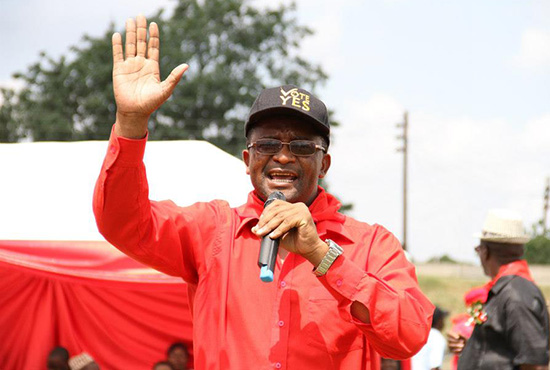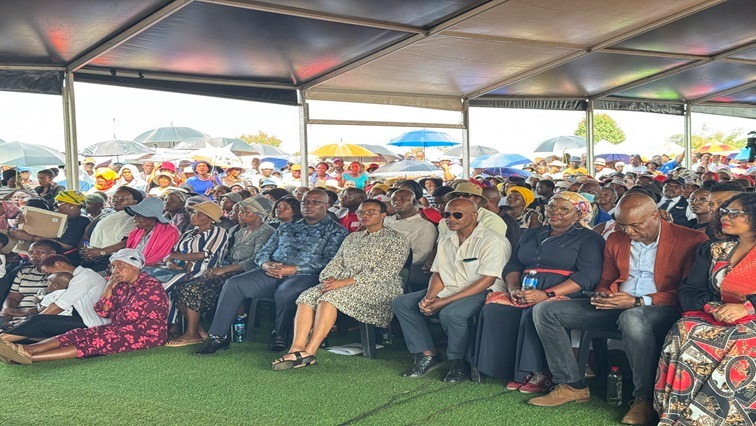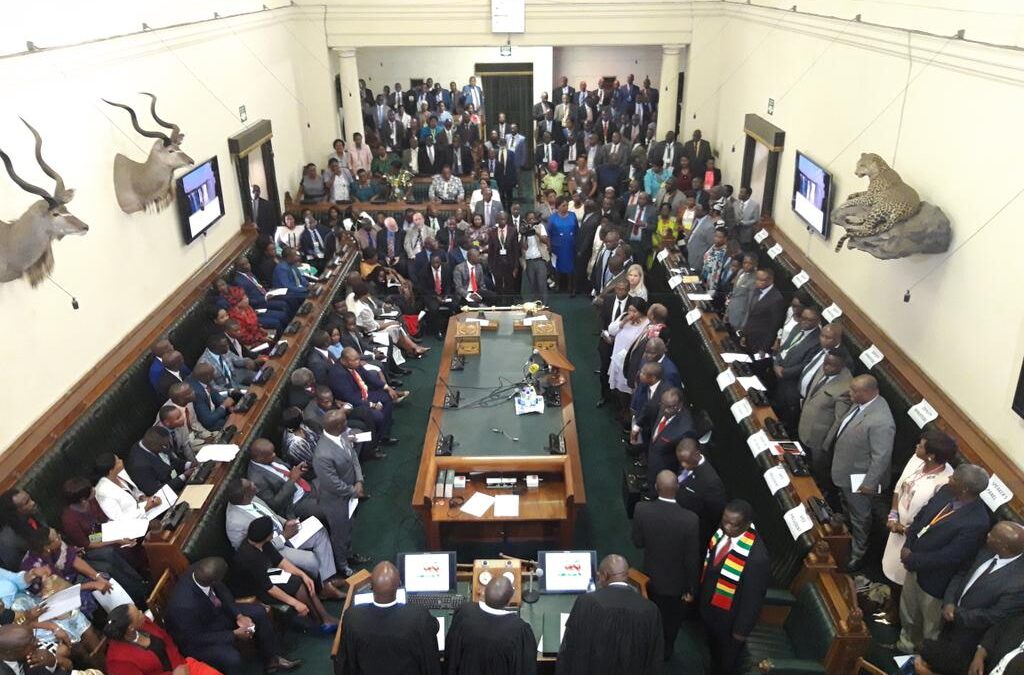Tafadzwa Nyikadzino
It is now two years after President Emmerson Mnangagwa secured his term of office. The President has been unfortunate to run this country at a time where drought, natural disasters and the Covid 19 pandemic have brought severe effects to Zimbabwe’s economy, forcing the incumbent and his cabinet to run with reactive than pro-active policies.
His cabinet received a lot of endorsements from citizens across the country’s social and economic spheres when it was appointed. But the country’s economic performance in these two years have seen scores of people calling for the country’s leader to consider re-shuffling his cabinet, with some calling for some ministers to resign due to incompetence.
State of the Nation took some time to review how ministries have been performing in their quest to fulfil their mandate to the people in 2020. Our review is based efforts being made by each and every ministry to fulfil its mandate and evaluate their successes/failures.
The country has 20 Ministries so every week we are going to release a brief review of 5 Ministries where we highlight their mission and the efforts they are making to meet their mandate.
The Ministry of Health and Child Care
The overall purpose of the Ministry of Health and Child Care (MoHCC) is to promote health and the quality of life of the people of Zimbabwe. The Ministry is headed by Dr Obadiah Moyo and Dr Agnes Mahomva Is the Permanent Secretary. This year, the Ministry had to deal with many health challenges but our review will focus on 4 which are (i) Shortages of Medicines and Medical Equipment (ii) the Doctors strike (iii) Malaria Pandemic in Uzumba, Maramba and Pfungwe and the current Covid 19 pandemic.
Shortages of medical Equipment and Medicines.
The Ministry started the year while facing challenges of the shortage of medicines and medical equipment in the country’s public hospitals. The problem saw patients being reportedly turned away from hospitals without getting treatment.
Various reasons behind these shortages were raised, the major one being the failure by the Reserve Bank of Zimbabwe to avail forex for pharmaceutical companies to import medicines since they heavily rely on imports. The ministry also blamed NatPharm, the State-run pharmaceutical warehouse for creating shortages by failing to deliver stockpiles of medicines at its warehouse to public hospitals. This prompted the First Lady to chip in and order Directors at NatPharm to speed up their deliveries.
Medical equipments were also in short supply at Hospital especially essential ones like latex gloves and bandages. This triggered one of the biggest strikes in the Health sector that we will talk about. The shortages are still there despite frantic efforts by the Ministry to engage the central bank to get first preference on Forex allocations, and the appointment of the First lady Auxillia Mnangagwa as the Health and Childcare Ambassador to help the ministry’s quest to provide medicines.
The shortages have driven the majority of Zimbabweans to private hospitals and pharmacies to source medicines where they are charges in U.S dollars, making them expensive for citizens who earn in local currency. This problem continues to exist and the Ministry is struggling to address it.
Doctors Strike
Doctors held one of the biggest strikes in the country against poor working conditions, shortages of medical equipment and poor salaries. The Ministry struggled to address this strike as it went on for four months. A lot of people lost lives during that period and country’s health sector colapsed.
The strike ended after Businessman Strive Masiyiwa intervened with a ZWL$100 million dollar fund to cater for doctors salaries.
Malaria Pandemic in Uzumba, Maramba and Pfungwe
The Ministry was faced again with another pandemic which came at a time where the country was fighting Covid 19. Reports from media organisations say the pandemic affected more than 3 000 people and claimed about 131 lives. The pandemic was successfully contained by the ministry in collaboration with private health players. Newsday reported on April 22 that there were sufficient health workers and medicines to save lives.
Covid 19 pandemic
The Ministry is currently facing challenges of containing Covid 19 in the country. The first case of the virus was recorded on 20 March. Since then, the country has confirmed 356 cases, 54 recoveries and 4 deaths. It is worthy to note that the number of cases in Zinbabwe is lower than neighbouring countries like South Africa (58 568 cases) Zambia (1,200 cases) and (481 cases) as at 12 June 2020. However, critics have said the low number of cases in Zimbabwe is a result of few tests that have been conducted (56, 746), saying local cases could reach alarming levels if more tests are to be conducted.
The ministry has also been blamed for failing to meet its targeted number of tests on people who would have finished their days at quarantine centres. The government’s initial target is to conduct 1,000 tests per day. Daily News on 25 May quoted Health and Child Care minister Obadiah Moyo confirming that there was a backlog of tests and that returnees were given the option of conducting private tests to avoid waiting for the government. Private tests costs US$65, a figure which many returnees cannot afford.
In April, the Ministry was sued by Zimbabwe Association of Doctors for Human Rights for failing to provide Personal Protective Equipment (PPE) to medical practitioners across the country. Thankfully, the United Nations Development Programme in Zimbabwe (UNDP) offered assistance by procuring PPE for frontline health workers worth US$4.1 million dollars.
There have also been calls from pressure groups and activists for the Minister of Health and Child Care Dr Obadiah Moyo to resign as he was fingered in a corruption case involving a company called Drax SAGL where he is alleged to have sanctioned the procurement of PPE at inflated prices.
The brief review above shows that the ministry is struggling to meet its mandate. But it will be a harsh judgement for people to say that the Ministry is not performing if we do not take into account the fact that it is operating with a shoestring budget. Last year, the ministry was allocated Zwl$6,459,100,000 which translates to US$8, 970,972 if exchanged using today’s black market rate (1:72). There is no way that the ministry can perform beyond what it is currently doing with those fund.
We believe that it has performed fairly with available resources, but the Minister needs to clear himself of corruption allegations and work on finding local and global partners to fund its efforts in fighting Covid 19.
Ministry Finance and Economic Development
The Finance ministry is the backbone of the whole cabinet as its performances affect all other ministries. People oftenly struggle to understand if the Ministry has autonomy over the Reserve Bank of Zimbabwe or not because most financial and money related decisions in the country are being dictated by RBZ Governor Dr John Mangudya, while Minister Mthuli Ncube is under the radar. Let us explore the relationship between the two entities to find out where they complement and differ.
Relationship between RBZ and the Ministry of Finance
The relationship between the Ministry of Finance and the Reserve Bank of Zimbabwe is that the former oversees the latter though the latter has its specific roles which are:
(i)To safeguard the stability and safety of the Zimbabwean financial system and to promote inclusive growth, (ii) to formulate and implement the country’s monetary policy, directed at ensuring low and stable inflation levels. (iii) To maintain a stable banking system through its supervisory and lender of last resort functions and to manage the country’s gold and foreign exchange assets.
Whereas the role of the Ministry of Finance is to formulate and coordinate macroeconomic policies, effectively mobilise, allocate, manage, account for public resources and avail funds for other government ministries. Now that we have an appreciation of how the two entities operate, let us review how they performed to fulfil their mandate
.
The Ministry of Finance
Last year, the Ministry presented a Zwl$63 billion dollar budget which sought to promote Higher Productivity, Growth and Job Creation. The budget aimed at growing the economy by 3% through boosting the agriculture, mining, manufacturing, construction and service delivery sectors.
Another interesting feature on the budget is that for the first time, the Ministry of Defence was allocated less funds than the Ministry of Lands, Agriculture, Water, Climate and Rural Resettlement, Health and Child Care and Primary and Secondary Education. However, the high inflation rate and the increasing loss of value of the country’s local currency against the much sought after USD is affecting the country’s economic growth.
The Ministry has failed to come up with sound Macroeconomic policies to strengthen the country’s currency and boost the manufacturing sector. Critics constantly say the lack of coordination between the Ministry and the Central Bank is the reason why the country’s financial sector is collapsing.
RBZ
RBZ Governor is on record saying he would resign if bond notes failed to work. But today he remains at the Helm of the Appex bank when the currency he introduced is losing value on a daily bases. The bond note which previously traded at par with the US dollar is now trading at Zwl$1: US$72 at the parralel market. The governor says the the black market is responsible for the depreciating value of the local currency. As I mentioned earlier on that most of the country’s policies are reactionary, the Central Bank has found itself fighting an unending war against the black market.
This war has seen the Appex bank having regular changes on its monetary policies. The sad reality is that the Central Bank is losing the battle despite all frantic efforts being made. Recently the Bank was taken to court by Ecocash for ordering the closure of Agent lines with high amounts of money, a move they thought would end the black market. It also introduced caps on Zipit and Agent line transactions to contain transactions in the black market since most of them were conducted on these platforms. But these move failed to bear fruits as transactions continue to take place in the parallel market.
From the above description, one can note that the Finance Ministry together with RBZ have no solution towards maintaining the stability and value of the country’s currency. Their failure to come up with progressive policies is affecting all sectors in the country. Business are now selling their goods and commodities in U.S dollars as they no longer have confidence in the local currency. The constant policy shifts have driven people to lose confidence in the banking sector, while potential investors are now more sceptical on investing in Zimbabwe. Many citizens have called on the Governor and the Minister of Finance to resign because they are failing to deliver their mandate.
But we believe that if they concentrate on financing the agricultural, manufacturing and production sector instead of fighting the black market, they can turn around the economy. The World Bank recently predicted that the country’s GDP is projected to pick up to 2.7% this there is a rebound in agriculture. This indicates that more money should be poured in that sector.
Ministry of Energy and Power Development
The role of this Ministry is to provide energy and electricity in Zimbabwe. Its core function is to formulate policies that enhance energy and power development in the country. The ministry has done a great job to end electricity power cuts and to cleare the $80 million legacy debt owed to Eskom. This development enabled the country to negotiate for a fresh power deal with South Africa.
The ministry is also in the process of clearing the $45 million debt owed to Cahora Bassa (HCB). The ministry is also overseeing the Hwange power plant expansion project which is scheduled for completion in 2022. The expansion project will increase the plant’s capacity to 1 520MW.
While success have been recorded in the Electricity side, the Ministry has performed poorly in terms of providing fuel in the country. The country has been facing fuel challenges since the dawn of the new dispensation. Long winding queues at service stations have become the order of the day and this is greatly affecting business since fuel is one of the most vital commodity in the economy. The Ministry is also failing to speed up the implementation of renewal energy projects. Recently, Minister Fortune Chasi made a controversial move to advocate for Intratrek, a company accused of failing to honour its contractual agreement when it was given $5 million by Zesa in 2015 to construct a 100 megawatt solar project in Gwanda.
He is also accused of stopping other companies that are capable of constructing the plant from proceeding while favouring Chivhayo, something which raises suspicions of him being complicit of corruption. So while the Ministry can be applauded for ending electricity load shedding, it still has to address the fuel shortages and spearhead the construction of renewable energy so that the country can have sufficient fuel and power.
Ministry of Public Service, Labour and Social Welfare
The ministry is responsible for labour relations and welfare in Zimbabwe. It seeks to provide a social security system that promotes a decent standard of living and a labour market environment which guarantees access to descent jobs for all.
Public Service and Labour
On this front, the Ministry is in constant battles with civil servants over salary reviews. The depreciating value of the local currency has eroded the value of the salaries of workers. So the ministry has found itself engaging in constant negotiations with union leaders over the matter. On several occasions, union leaders engage the ministry over salary reviews, with the former demanding the employer to pay salaries in US dollars or equivalent in local currency. Although the Ministry is yet to meet this demand, it has managed to emerge in every meeting with salaries structures that are satisfactory.
On 7 June, Minister Paul Mavhima was quoted by the Sunday Mail saying government is going to sit with workers over their salaries and welfare. However, he mentioned that the state would not pay its workers in foreign currency as expected by workers.
Social Welfare
On this front, the Ministry has struggled to provide social security services to the country mainly due to financial constraints. Promises were made that this department would oversee the issuance of the $200 million dollar fund from treasury to cushion vulnerable people during Covid 19. Deputy Minister Lovemore Matuke is quoted in CITE saying the funds had been disbursed to 21 000 people in Harare and Bulawayo out of over 200 000 people targeted by the government.
The value of the money has since been eroded by inflation before reaching the majority of people who are yet to receive it. But the Finance ministry is on record saying the figure will be reviewed constantly to meet inflation.
On pensions, the Ministry recently announced that it would adjust pensions for its former employees after receiving an outcry from pensioners who are earning between Zw$32 and Zw$80. The reviews are yet to be announced. But corruption allegations have marred the Ministry in recent times with former Ministers, Prisca Mupfumira and Dr Sekai Nzenza being accused of misusing Pension funds at NASSA.
Again, the poor performance of this Ministry is premised on lack of adequate funds and corruption. This has driven many citizens especially those in Rural Areas to rely on NGO’s and donor funds for social security, while others are heavily reliant on remittances from the diaspora.
Ministry of Industry and Commerce
The Ministry seeks to promote the development of vibrant sustainable and globally competitive industrial and commercial enterprises, and fair trade practices through the provision of conducive policy and regulatory frameworks.
Not much has happened in the country’s production and manufacturing sector and this has driven the country to heavily rely on imports of both raw and finished products. The lack of activity has been blamed on foreign currency shortages to finance the re-tooling of industries, and lack of foreign direct investment into the sector.
Last year, the Business Times reported on 8 April that Afreximbank was set to avail a $300 million facility to finance the country’s re-tooling exercise. But the country’s continuous reliance on imports indicates that the the re-tooling exercise is yet to see the light of the day.
The few industries that are manufacturing goods locally have cried over the high cost of production in the country which is stifling their competitiveness in regional and global markets. For example, a locally produced good cost more than an imported good after the former incurs transport and shipment costs.
This is due to the fact that electricity and fuel are very expensive. Given such a background, the Ministry is failing to meet its mandate and this has led to the rise of informal traders to fill up the huge vacuum created by the lack of production. A vibrant industry leads to a vibrant economy so the ministry should work hand in glove with the finance ministry to devise ways to boost the production sector.
Stay tuned for our next review on other 5 ministries.





0 Comments